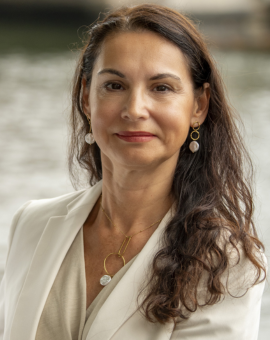Second World Summit for Social Development

UN Second World Summit for Social Development
'General Debate'
Statement by the International Institute for Democracy and Electoral Assistance
Chair, Excellencies, distinguished delegates,
Thirty years after Copenhagen, and now here in Doha, we are reminded that democracy is not an optional add-on to social development, but its enabling condition. The evidence International IDEA is presenting today, drawn from our Global State of Democracy Indices covering 174 countries and our SDG 16 Data Initiative report, demonstrates this with clarity.
Across every region, democracies perform markedly better on the outcomes set out in the Copenhagen Declaration: gender equality, social inclusion, and basic welfare. On average, levels of gender, economic and social group equality are nearly 45 per cent higher in democracies. Basic welfare is 30 per cent higher. Corruption is roughly 50 per cent lower.
In high-performing democracies, those differences more than double. The quality of democracy matters. It is not the existence of elections alone that makes the difference, but their integrity; not just the presence of institutions entrusted to check power, but their independence; not the mere promise of rights, but their enforcement through the rule of law. Where these foundations are strong, social development flourishes. Where they weaken, progress stalls.
Our findings confirm that rule of law and corruption control are the strongest drivers of economic welfare, while inclusive representation and rights determine how fairly those gains are shared across society. In other words, good governance builds prosperity—and democracy ensures it is distributed justly.
Democratization itself drives social progress. As societies become more democratic, they tend to invest more in education, health and social protection, leading to higher growth and longer life expectancy. Conversely, when democracy declines, prosperity falters, trust collapses, and citizens’ faith in the social contract diminishes.
This is why the recognition of democracy in the draft Doha Political Declaration is both historic and necessary. It restores to the global development discourse a basic truth that data, experience, and citizens all affirm—that sustainable social development requires democratic governance.
Yet gaps remain. Even in democracies, progress on SDG 16 and the 2030 Agenda is off track. Many democracies struggle to deliver visible results, fueling public disillusionment and opening space for authoritarian alternatives. To restore citizens’ trust, governments must ensure that democracy delivers in visible ways—through transparent rule of law, responsive parliaments, inclusive participation, and equitable access to justice.
International IDEA urges Member States to anchor this imperative in all follow-up actions to the Doha Declaration: to treat investments in democratic institutions not as political expenditure but as contributions to social infrastructure essential to the goals of health, education, equality and peace that define this Agenda.
Chair,
Our collective task is not only to defend democracy, but to make it deliver on its promise: dignity, inclusion and opportunity for all. Only through advancing democracy and social development in tandem will we honour Copenhagen’s vision, fulfil Doha’s commitment, and realize the 2030 Agenda.
Thank you.
